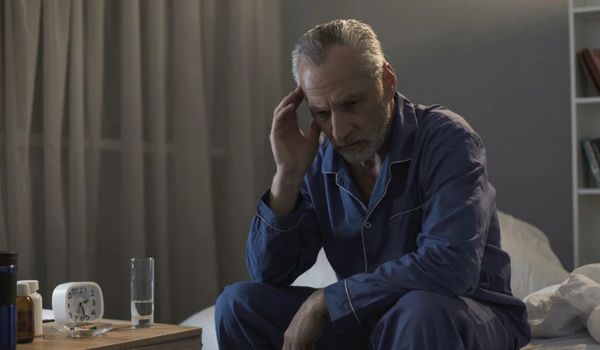Sundowning, also known as sundown syndrome, is a condition that involves a state of confusion during the late afternoon and nighttime hours. While sundowning isn't a disease itself, those living with dementia and Alzheimer’s often exhibit the behaviors associated with sundowning.
Sundown syndrome can be emotionally draining for caretakers. If you’re looking for answers, read on to learn the causes of sundowning and advice for helping your loved ones when they experience this condition.
Symptoms of Sundowning
Sundowning often involves several uncomfortable symptoms, including the following:
Confusion
Someone with sundown syndrome may experience a great deal of confusion later in the day. They may forget names, where they put something, or what they had planned for the evening. Confusion results in uncomfortable feelings that can make the experience much worse.
Disorientation
It's also common for these people to feel disorientated. They may not realize where they are, who they're talking to, or even their name. When someone is disoriented, thinking clearly may be extremely difficult for them. Sundown syndrome sufferers also experience a lack of attention, decreased clarity, and the inability to concentrate.
Anxiety
Often, people who experience sundowning feel anxious. They may have a rapid heartbeat, worries, fears, and racing thoughts. These feelings can also increase with added stressors. Anxiety can worsen other sundowning symptoms, making it harder to cope.
Agitation
Sundowning may also lead to agitation, which brings on tense feelings and restlessness. Those experiencing agitation may get annoyed quickly. Stress can also make these feelings more severe. Agitation is a common symptom of dementia, which can sometimes lead to increased anxiety and even aggression.
Aggression
Feeling confused, anxious, and disorientated can lead to aggression in sundowning sufferers. Those experiencing the condition may argue more with loved ones or act hostile against others.
Sundowning sufferers may also pace or wander. These symptoms typically occur around the same time, usually the afternoon to evening hours. Due to these troubling symptoms, people can also have sleeping problems.
Is it Alzheimer's? Check out our blog for tips on when your senior loved one should be tested for neurodegenerative disorders.
Contributing Factors of Sundowning
Several contributing factors can make the condition more severe, such as:
- Reduced lighting
- Inconsistencies with the body's internal clock
- Mixing up dreams with reality
- Nonverbal behaviors from loved ones or other people
- Mental and physical fatigue after being confused and disorientated
- Need for fewer hours of sleep, which is common for seniors
If you suspect your loved one is developing sundown syndrome, make an appointment with their doctor to discuss their symptoms.
Possible Causes of Sundowning
The exact causes of sundowning are unknown. However, experts suggest inconsistencies in a person’s “biological clock” cause the syndrome. For example, waking up and sleeping at different times may lead to these symptoms.
Here are some other possible causes of sundowning:
- Being hungry or thirsty
- High level of tiredness
- Depression
- Being bored
- Having pain throughout the body
Coping with these other symptoms may offer relief for sundowning sufferers.
How To Cope
When dealing with a loved one who might have sundown syndrome, look for symptoms in the afternoon and evening hours. If possible, try to find any triggers or causes for these symptoms. If they feel irritated or worried, gently listen to them and reassure them everything will be okay. You may try distracting them from stressful events or anxious feelings.
Another tip is to ensure a clean, quiet environment. Ensure the home is clean and noise levels are at a minimum. Cluttered, noisy spaces may cause sundowning or make the symptoms worse. You can also try playing some soothing music or going for a peaceful walk.
Staying energized is a great way to prevent sundowning. Try to spend time with your loved ones outdoors so they can experience nature and help them get adequate exercise. Sunshine and bright light can help normalize a person's internal clock.
Fighting fatigue and tiredness is also an important tip. Make sure your loved one is getting enough sleep. If your loved one needs a nap, make sure it's not too late in the day.
If Symptoms Don't Improve
When sundowning continues to be a problem, seek medical attention. A doctor may find the cause of the condition or offer advice that may help ease symptoms. Experts sometimes determine the cause of sundowning symptoms as an illness, sleep disorder, or medication side effects and can make appropriate treatment recommendations.





